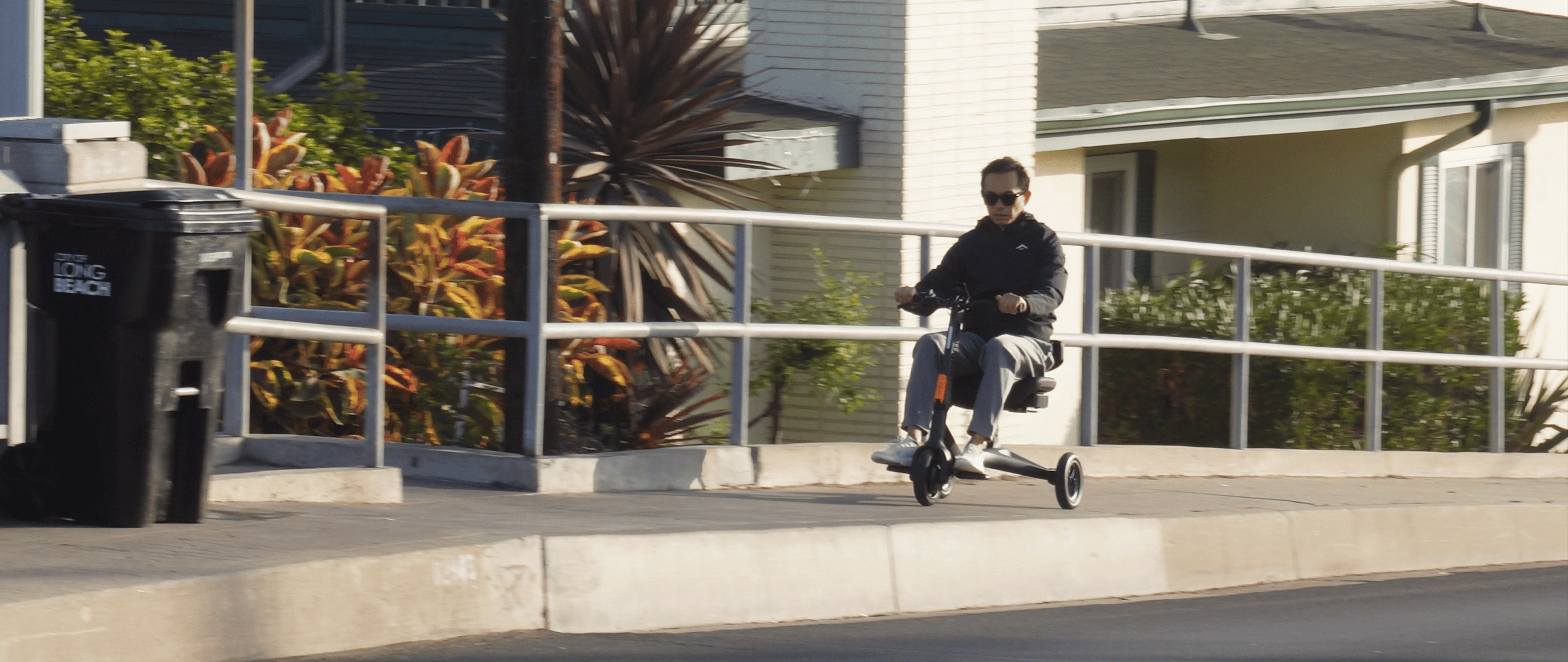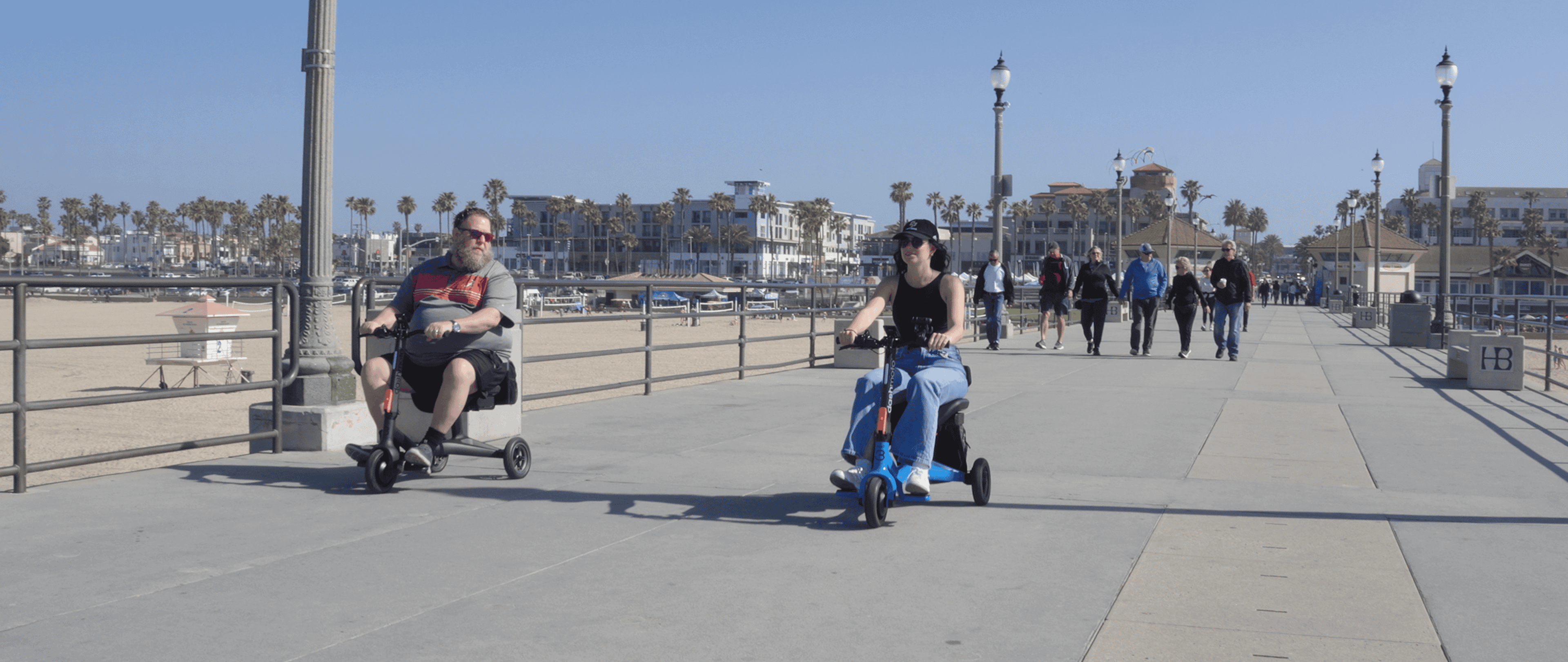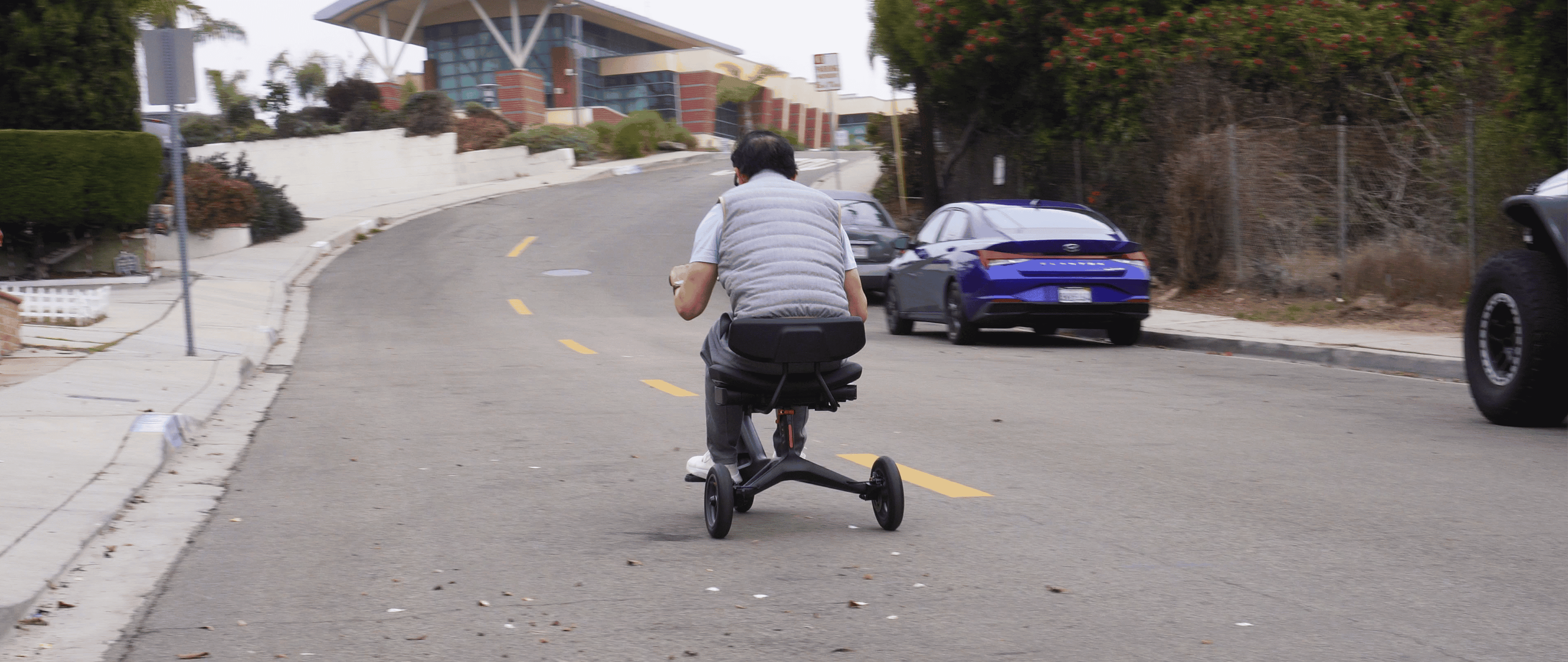Can You Legally Ride an Electric Mobility Scooter on Sidewalks?

Sidewalk riding laws for electric scooters vary widely across the United States. Knowing where it’s legal to ride can help you avoid fines and stay safe.
This guide breaks down sidewalk riding rules state by state, so you can ride your dashmoto® scooter with confidence — especially if you use the dash 3 as a mobility device, which allows access in more places than traditional e-scooters.
Why sidewalk riding laws matter for scooter riders
Electric scooters are fast, quiet, and incredibly convenient. But sidewalks weren’t built for them.
Sidewalks are usually reserved for pedestrians, which means riding on them with a motorized scooter can create unexpected hazards. A distracted walker, a tight corner, or a hidden driveway can quickly lead to unsafe situations.
That’s why electric scooter sidewalk laws exist — and why they vary so much from place to place. Cities and states want to keep public spaces safe, especially when mixing walkers and wheels.
But here’s the key distinction: if you're using your dash 3 as a mobility device, the rules are different. Mobility scooters are federally protected under the Americans with Disabilities Act (ADA), which means you're legally allowed to ride in areas where standard e-scooters might be restricted — including sidewalks, retail stores, airports, and more.
Understanding this difference helps you ride smarter and more confidently, no matter where you go.
States that allow sidewalk riding (with restrictions)
Some states do allow riding on sidewalks, but with limits. Understanding local rules helps prevent surprises.
If you use your dash 3 as a mobility aid, you’re already protected under ADA guidelines. That means even in areas with restrictions, you’re allowed to ride on sidewalks and inside public buildings.
California
Generally, electric scooter use is not allowed on sidewalks unless explicitly permitted by local law. Some beach towns or residential areas allow it, but downtown zones typically prohibit it.
Arizona
Sidewalk riding depends on the city. Some towns permit it, others don’t. But mobility devices like the dash 3 can go wherever foot traffic goes.
Colorado
Scooter sidewalk laws by state get especially local in places like Colorado. State law permits riding on sidewalks unless a municipality decides otherwise. Watch for signs that restrict use in city centers or business districts.
Washington
You can ride on sidewalks at speeds under 6 mph. If using the dash 3 in walk mode, you won’t have any issues, as this will cap your speed at 4 mph.
Illinois
Sidewalk riding is technically allowed unless banned by a specific jurisdiction. In downtown Chicago, for example, you’ll likely need to stick to bike lanes.
Oregon
Permitted in many suburban and residential areas, but local governments may restrict usage in downtown or high-traffic zones.
Georgia
Allowed on sidewalks in some places, but speed limits and pedestrian rules apply. Check your city’s transportation guidelines for details.
Minnesota
Scooter use on sidewalks is permitted unless a local ordinance restricts it. Minneapolis allows limited sidewalk use outside the downtown core.
Looking for a portable solution that adapts to different cities and surfaces? The dash 3’s lightweight, foldable design makes it ideal for travel and tight indoor spaces.
States that prohibit sidewalk riding
Even in states with firm restrictions, mobility scooters like the dash 3 are allowed to operate on sidewalks and inside public buildings. It's a key legal difference that supports accessibility for people who rely on mobility solutions.
New York
Standard e-scooters are banned from sidewalks. But if your dash 3 is being used as a mobility aid, you’re permitted on sidewalks, in stores, and even in airport terminals.
Texas
Most major cities in Texas prohibit sidewalk riding. This includes Austin, Dallas, and Houston. Violations may result in fines, and enforcement can be strict.
Florida
Scooter sidewalk laws vary by county, but in general, sidewalk riding is restricted unless a city explicitly permits it. Most tourist-heavy areas do not allow it.
Massachusetts
Electric scooters are treated similarly to bicycles, which means no sidewalk use in business districts. Riders are expected to share the road or use bike paths.
Nevada
Sidewalk riding is tightly regulated. Many cities, including Las Vegas, prohibit e-scooters on sidewalks in commercial zones. Riders must use bike lanes or shared-use paths when available.
For a deeper look into how a scooter can adapt to your life, see how people are using the dash 3 to regain freedom and independence.
States with no clear regulation or local control
In states without specific e-scooter sidewalk laws, it’s always best to ride cautiously — unless you’re using your dash 3 as a mobility device.
Mobility devices are protected by federal law and can be used on sidewalks, inside buildings, and in public areas even in places where scooter laws are unclear or still developing.
Mississippi
There are no statewide rules about electric scooters on sidewalks. That means cities or counties decide what’s legal. When in doubt, play it safe and avoid sidewalks.
South Dakota
Laws are sparse, and sidewalk rules may not be clearly posted. Check with your local city hall or transportation office before riding.
Montana
Montana does not have firm laws on e-scooter sidewalk use. Many towns have not yet addressed scooters directly, so best practice is to avoid pedestrian areas.
Alaska
Scooter rules are limited, and sidewalk riding isn’t clearly addressed. Look for posted signs and prioritize pedestrian safety.
Not sure how to evaluate a scooter for legal use and personal comfort? Here’s a guide to what makes a scooter worth the investment.

How to know if you can ride on the sidewalk in your city
Scooter sidewalk laws by state can be confusing. Local ordinances, signage, and enforcement vary wildly.
To stay informed:
- Visit your city’s Department of Transportation or local DMV website
- Look for posted signs, especially in downtown or high-traffic areas
- Use scooter and mobility apps that flag restricted zones
- Ask a local store or city official if you’re unsure
But remember: if you're using your dash 3 as a mobility device, these restrictions typically don’t apply. ADA compliance gives you the right to access sidewalks, elevators, lobbies, and even stores that otherwise prohibit scooters.
This means the dash 3 isn’t just versatile, it’s designed for real-world use across multiple environments, offering a better everyday mobility solution.
Safety tips if sidewalk riding is permitted
Whether you’re using your dash 3 recreationally or as a mobility aid, safety comes first.
If you’re riding on a sidewalk (legally or as an ADA user), keep these tips in mind:
- Ride at a slow pace — under 6 mph is safest for pedestrian areas
- Always yield to walkers, and give verbal cues when passing
- Be alert at driveways, exits, and intersections
- Use your bell or horn to alert others to your presence
- Equip your dash 3 with lights and reflectors for evening or indoor visibility
The dash 3 was built with thoughtful safety features and a carbon fiber frame that’s responsive enough for narrow corridors, store aisles, and busy sidewalks alike.
Understanding sidewalk laws keeps you safe
Electric scooter sidewalk laws aren’t just about rules, they’re about confidence and inclusion.
For many riders, the dash 3 offers not just freedom, but accessibility. If you're using it as a mobility device, you're covered by ADA laws that guarantee access to sidewalks, public buildings, transportation hubs, and stores.
So while cities and states continue to update their rules for recreational scooters, your legal right to ride remains protected. That’s the power of smart design and thoughtful legislation coming together.
Whether you're commuting, exploring, or simply getting through your day, the dash 3 has your back — on the street, on the sidewalk, or even at the airport gate.
Want to explore more stories, tips, and resources? Experience the dash 3 in action on our YouTube channel.
Related posts

Electric Mobility Scooters & Licensing: Can You Ride Without a License?
Confused about electric scooter licensing? Learn whether you need a license to ride, the latest laws by region, and key regulations for 2025.